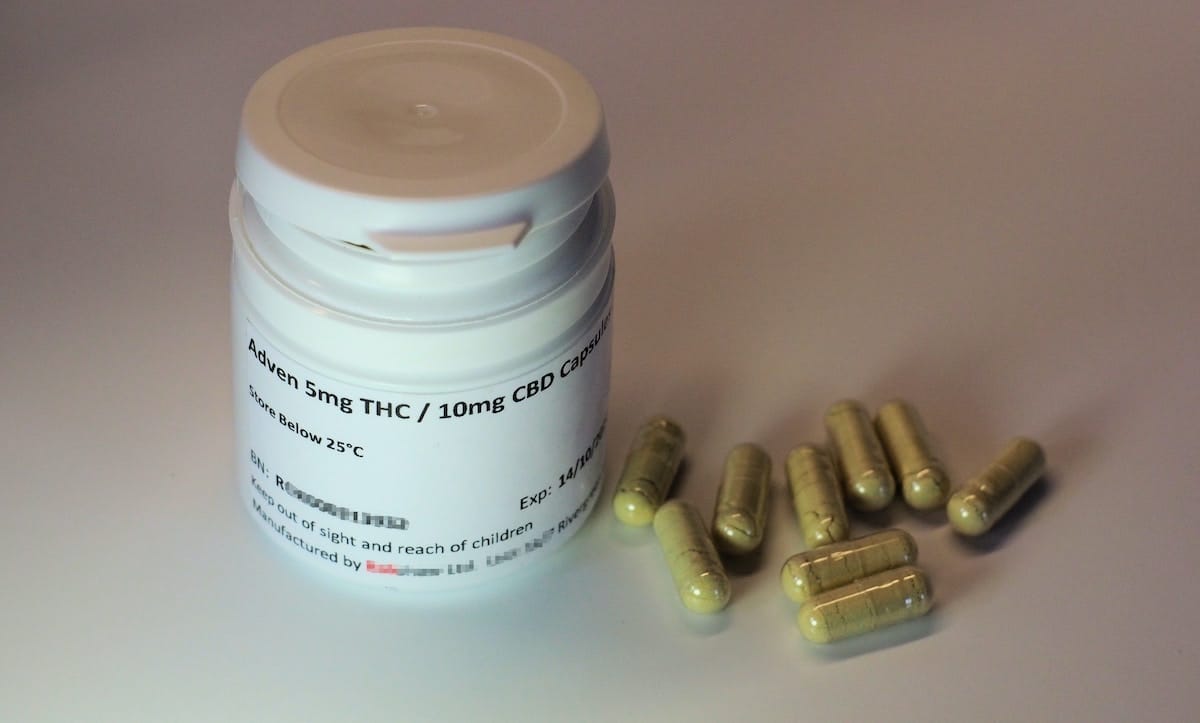While a number of countries have been taking recent steps toward legalizing cannabis, the United Kingdom lags behind. Unlike in Canada and various parts of the United States, nonmedical use remains illegal. Medical cannabis has been legal since 2018. Yet British patients face numerous barriers to access and use, as a recent paper illustrated.
Published in the International Journal of Drug Policy, it used participant interviews to examine social and administrative obstacles faced by medical cannabis patients, shedding light on their experiences.
According to Lindsey Metcalf McGrath, who co-authored the paper with Helen Beckett Wilson (both are senior lecturers in criminology at Liverpool John Moores University), little past research on this topic existed. Many UK citizens, she added, aren’t even aware that medical cannabis is legal.
“Hardly anyone knew about it, and it was very, very difficult to access,” Dr. Metcalf McGrath told Filter. “The project was born, really, to realize that there was a need for some research, to talk to people about their experience of going through this process of trying to get a prescription in the UK.”
The paper was drawn from 24 participant interviews. Of those 24, only one held a prescription from the UK’s National Health Service (NHS); the rest had gone through private clinics to access their medicine. The participants had experienced conditions including epilepsy, PTSD, ADHD, anxiety and fibromyalgia, among others. Twelve patients cited pain, often in addition to other conditions, as their reason for medical cannabis use.
“There’s this horrific, ironic situation where people who are facilitated by cannabis are then trapped back in by this lack of knowledge on behalf of some professionals.”
The patients interviewed highlighted a lack of knowledge among health care professionals, law enforcement, and even friends and family, about not only the efficacy but also the legality of medical cannabis. Even doctors, they reported, may not be aware of its availability as an option.
“There’s this horrific, ironic situation where people who are facilitated by cannabis to leave their house for the first time in 10 years are then trapped back in again by this lack of knowledge on behalf of some professionals,” Beckett Wilson told Filter.
Participants’ responses also illustrated stigmatization, and the fear of it. Some expressed concerns that their landlords might attempt to evict them, or that the general public might react poorly to them vaping or otherwise consuming medical cannabis outside their homes. The paper didn’t attempt to quantify this issue, but quotes several participants as having directly experienced discrimination, including from law enforcement, around their medical cannabis use.
Administrative and financial barriers can also be considerable. As the paper notes, there’s only a narrow range of conditions for which the NHS, the UK’s universal health care system, is willing to prescribe cannabis. As such, the majority of people who obtain a prescription end up paying out of pocket through private clinics. This leaves medical cannabis out of reach for people who can’t afford it.
“We would really like policymakers to start taking real-world evidence seriously.”
The paper suggests that broadening evidence standards could help here. While the government and the NHS privilege randomized control trials in determining the safety and efficacy of medical cannabis products for different conditions, there’s also a need, the authors write, for data taken from real-world evidence. Less costly and time consuming than randomized control trials, collecting evidence from patient groups lends itself well to the study of complex, whole plant-medicines, the paper states.
The paper references T21, previously called Project Twenty21, a large-scale observational study on the efficacy of cannabis to treat a variety of conditions, as a successful example of real-world evidence-based research.
“We would really like policymakers to start taking real-world evidence, like T21 data, seriously,” Mags Houston, head of projects and communications at Drug Science, the organization that heads T21, told Filter. “Because then they’ll be able to see very clearly that cannabis is good for many conditions.”
“It’s not just like our pharmaceutical industry, where typically one tablet treats one condition,” she continued. “With cannabis being a whole plant made up of so many minor cannabinoids, it treats many different conditions. And that’s what T21 is showing us, clear as day.”
All of these factors have led to what Beckett Wilson and Metcalf McGrath have dubbed cannabis evangelism. Metcalf McGrath noted that the lack of public awareness, despite the transformative benefits of medical cannabis, motivates many patients and family members to advocate for better representation and access.
“I have patients calling me most weeks who’ve been arrested, accosted, or had medicines taken by a police officer who doesn’t know the law.”
Alex Fraser is one patient who has experienced challenges in accessing medical cannabis, which he sought to help with his symptoms of Crohn’s disease. He went on to co-found the grassroots advocacy organization United Patients Alliance, and has spoken with many patients who have voiced concerns similar to those identified by Beckett Wilson and Metcalf McGrath.
“I have patients calling me most weeks who’ve been arrested, accosted, or had medicines taken by a police officer who doesn’t know the law,” Fraser told Filter.
So what’s the way forward? For Fraser, it’s what he terms “the acceptance factor,” and public awareness of cannabis as a prescription medicine. To help achieve this, Fraser advised advocacy groups to model different organizations—he cited the MS Society, Crohn’s & Colitis UK, and Cancer Research UK—that have worked on the medical framing of medical issues.
Fraser’s advice carried a sense of a need for institutional legitimacy as one of the main gateways to social acceptance, combined with grassroots advocacy, projects like T21, and growing academic interest in access to medical cannabis. Broader acceptance seems likely to happen in the end. But all agreed that the journey is far from over, and that too many cannabis patients in the UK—as well as those who still can’t access the medicine—are not receiving the support and acceptance they deserve.
Photograph by Stephen Cobb on Unsplash





Show Comments